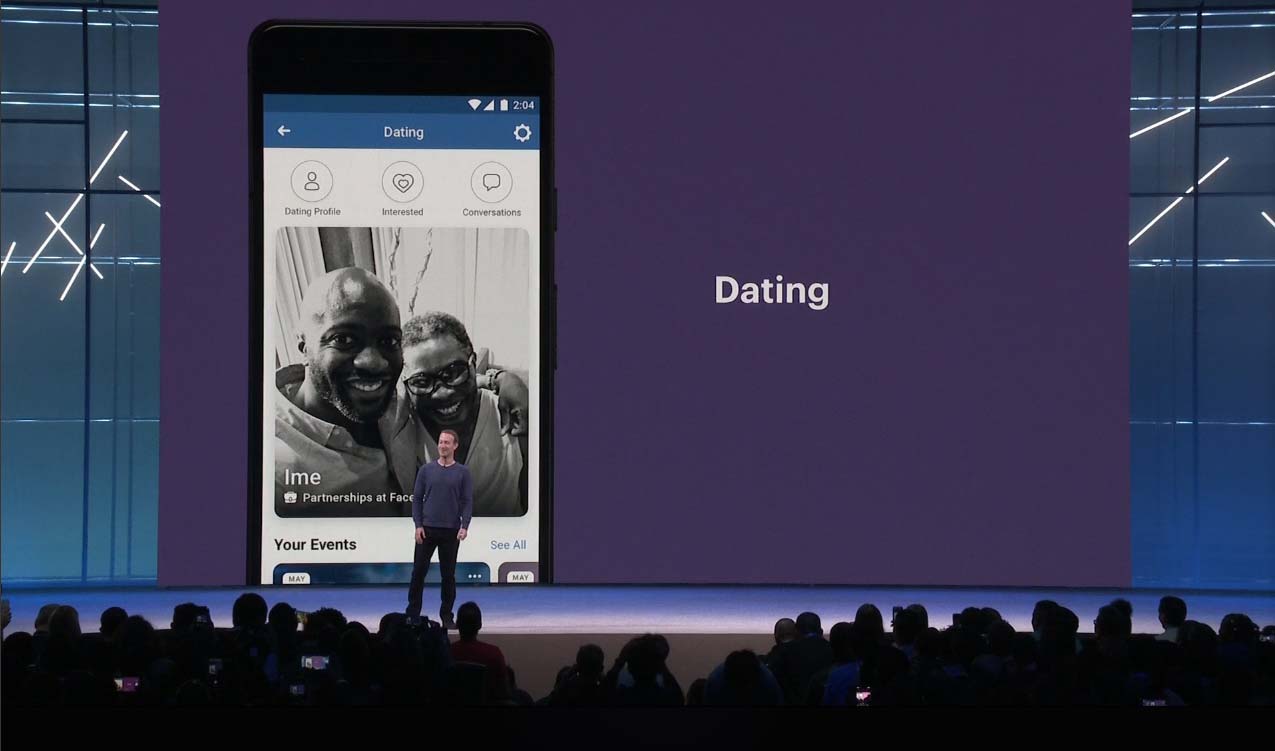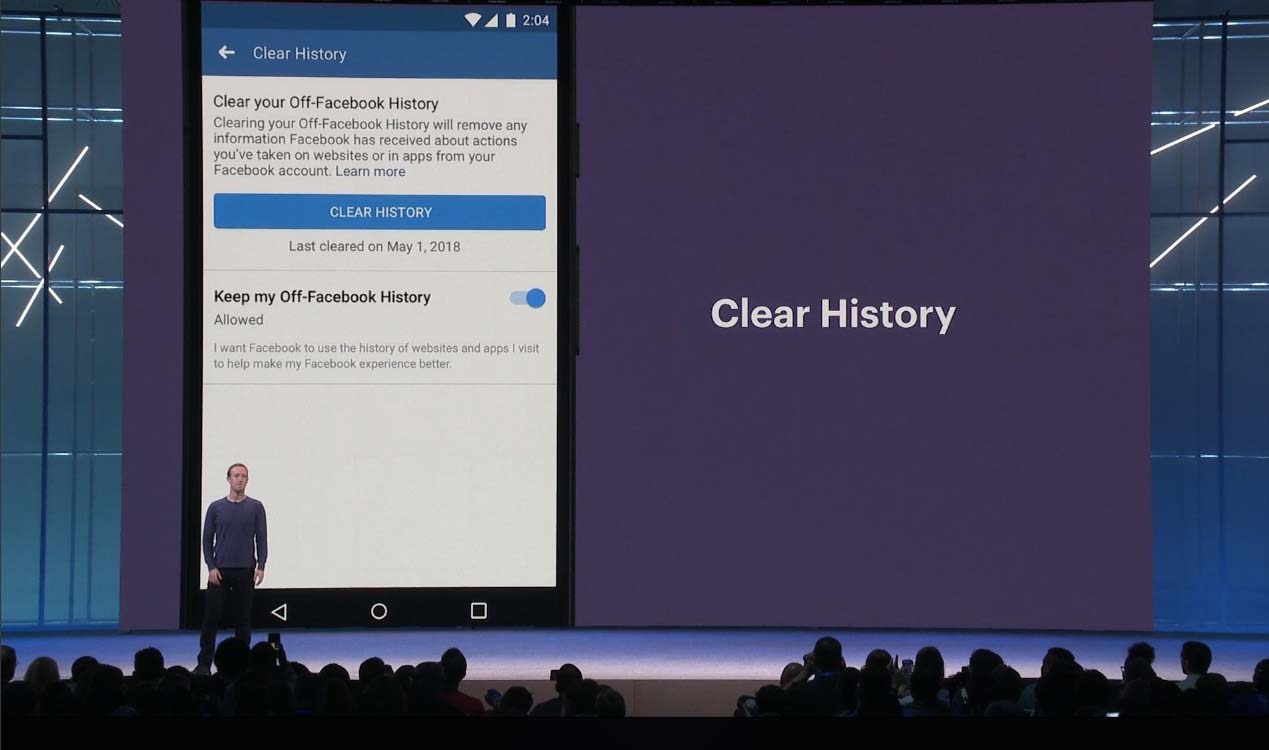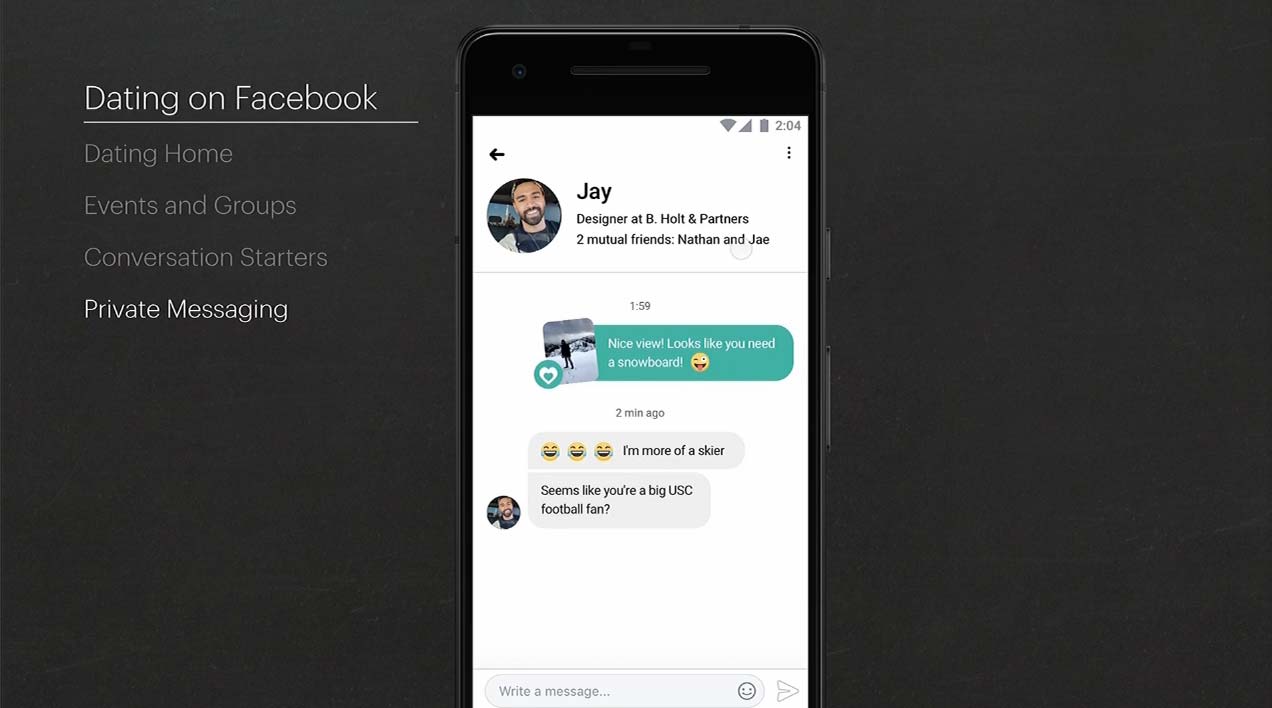Facebook Really Hopes You'll Like Its New Dating Service
While it works to shore up its privacy features, Facebook also plans to introduce new capabilities to its social network, including one aimed at helping you find your soulmate.
SAN JOSE — Facebook is confident it can tackle concerns over user privacy and security that it's betting you'll let the social network handle your dating life.
The Facebook app is adding a dating feature that's aimed at helping you find long-term partners — not hook-ups a la Tinder, more than one Facebook executive emphasized — who share your interests. Facebook is vowing that its dating feature will be designed with user privacy and safety in mind.

"If we're focused on helping build meaningful relationships, this is the most meaningful of all," said Mark Zuckerberg, Facebook's CEO, addressing a convention hall full of Facebook developers at the company's annual F8 conference today (May 1).
Adding a dating feature to Facebook is a bold step considering the cloud the company finds itself under in the wake of the Cambridge Analytica scandal. After the data-mining firm got access to the personal information of millions of users, Facebook's privacy policies came under renewed scrutiny.
MORE: How to Stop Facebook From Sharing Your Data
Zuckerberg struck a conciliatory tone to kick off F8, vowing to make sure that Facebook improves security for its users. But as it works to improve how it safeguards user data, Facebook needs to continue delivering new and improved products that are in line with its mission of connecting people, Zuckerberg said.
"We need to do more to keep people safer, and we will," Zuckerberg said. "But we also need to keep building and bringing the world closer together."
Sign up to get the BEST of Tom's Guide direct to your inbox.
Get instant access to breaking news, the hottest reviews, great deals and helpful tips.

In terms of keeping people safer, Zuckerberg outlined the steps the company is taking to protect election integrity, using artificial intelligence to identify fake accounts and instituting new rules for ad transparency. Zuckerberg also recapped Facebook's efforts to cut down on fake and misleading news from filling your Facebook feed.
But a new tool introduced today gives users a little more control over their personal information. Clear History gives Facebook users a way to clear out apps and websites they've interacted with by deleting that information from their Facebook account and even blocking it from being linke to an account going forward. From the sound of it, Clear History works a lot like deleting cookies in a web browser.
Dating — and more — come to Facebook
Clear History is one of the changes coming to Facebook, but based on the reaction at F8, the more headline grabbing addition will be Facebook's newfound dating feature. It's an opt-in service that you'll access by tapping an icon in the upper right of your user profile. To set up a dating account, you provide just your first name, and you can browse events and groups relevant to your interests and locations.
None of this dating-related browsing shows up in your News Feed, and it won't be visible to your friends. Even the texting you do with potential matches in the dating section of Facebook will be independent of Messenger and WhatsApp. That will address some privacy and safety concerns, but Facebook will still need to provide a lot more details on how the feature will work by the time it begins testing later this year.

Nevertheless, Facebooks executives seem optimistic that their dating feature can deliver the goods. "We hope will help find more folks meet and hopefully find new partners," chief product officer Chris Cox said.
Dating isn't the only change coming to Facebook. This summer, as part of the company's push into virtual reality, you'll be able to add 3D photos to Facebook. Details were sparse during today's keynote, but essentially you'll be able to snap a photo with your smartphone and upload it to Facebook as a 3D photo. The resulting image will give special focus to people and objects, not unlike a photo with enhanced portrait effects.
Other Facebook enhancements include a new Groups tab for the Facebook app, which will help you manage the groups you belong to and discover new ones that match your interests, and the ability to share from other apps into the Stories feature on Facebook and Instagram. (That capability is launching as a beta with Spotify, letting you share what tunes you're listening to.)
Instagram, Messenger and WhatsApp
Speaking of Instagram, the photo-sharing service is getting a video chat feature in a few weeks which will let you chat privately with friends within the Instagram app. Instagram is also getting a redesigned Explore section to improve discovery, and AR Camera Effects will bring interactive face filters and effects.
The Messenger chat app is gaining a M Translations feature in the coming weeks that will offer real-time translation for buyers and sellers in Marketplace who speak different languages. The feature launches with English-to-Spanish translations first. Business will be able to integrate AR Camera effects into Messenger, too. As for WhatsApp, it will soon get group calling to augment its voice and video calling features.
Facebook used F8 to announce the start of the $199 Oculus Go headset and to tout a few other features coming to its VR platform. These include Venues, launching this month, to let you virtually attend concerts and sporting events, and Rooms, which gives you a place to play games with your friends.
Image Credits: Facebook
Philip Michaels is a Managing Editor at Tom's Guide. He's been covering personal technology since 1999 and was in the building when Steve Jobs showed off the iPhone for the first time. He's been evaluating smartphones since that first iPhone debuted in 2007, and he's been following phone carriers and smartphone plans since 2015. He has strong opinions about Apple, the Oakland Athletics, old movies and proper butchery techniques. Follow him at @PhilipMichaels.

